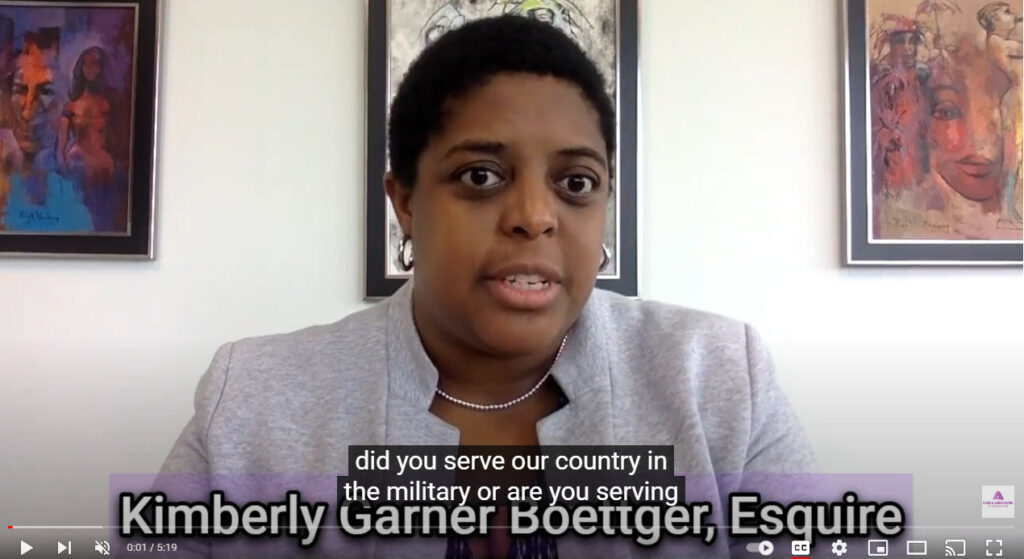It’s a great question and one that we get pretty frequently. The question is almost impossible to answer because it’s depends. It depends on the needs of the client. It depends on the complexity of the case, the size of the estate, if there are custody issues or not, and more. A divorce can be a significant cost.
However, the good news is that there are a lot of things a client can do in order to keep the cost of their divorce down. When you’re approaching your divorce, unless you have endless resources, it’s a good idea to do what you can do to maximize the time with your attorney. The first realization that I think enables a person to keep the cost of their divorce as low as possible is to understand the more time that you use, the more attorney time that you use, the higher your bill is going to be. There’s a lot of things that you can do to reduce the amount of time that, that you use.
Use The Time With Your Attorney Wisely
The first thing to do is to make sure you get all of the answers to your questions. Don’t avoid talking to your attorney because you don’t want your bill to go up. You won’t get the service that you need. You won’t get the outcome that you’re looking for. So that’s not how to go about it.
What you do is you make the time that you spend with your attorney as valuable as possible. In other words, you prepare what the best way to prepare to meet with your attorney is to write down your questions – to collect them as you go and as you think of them. If a question pops into your head, don’t pick up the phone and call your attorney, write it down. Collect your questions in one place.
Use Questions to Guide the Conversation With Your Attorney
And then, when you meet with your attorney – that’s the time to use those questions to guide the conversation. When you are meeting with your attorney, take the time and write down the answers to those questions during that meeting. And at the end of the meeting, you should review the questions and the answers with your attorney to make sure you’re both on the same page. When you get ready for the next meeting, you do the same thing. You write down the questions. And before you meet with the attorney, you should review everything that happened in the first consultation with your questions and your answers, and you should be prepared with your new set of questions. That’s one of the most important things you can do – organizing your thoughts and making sure that you have the information you need.
Accept Uncertainty
The next thing that I think that you need to really understand is that most people like answers and have a desire to have a clear understanding of what will happen. Unfortunately, in the divorce process, there isn’t any certainty. What you should be looking for is to understand the range of things that may happen. So, if you can accept that there’s no certainty, and instead you’re focused on asking for a different answer – the range.
And then to understand, what can you do to influence that range? It’s a different kind of conversation. It’s a different type of information that you’re going to be working with. As you go through the divorce process, there isn’t a yes or no,
Be Proactive to Help Keep Costs Down
The next thing to understand is that you can help keep the costs down by being very proactive. There’s a lot of documentation that is necessary when you’re preparing for litigation – you need tax returns, credit card statements, bank statements, and other financial information. In some cases, the documents needs will be going back for years. A lot of times clients will come to the office with this stuff printed out and just in a box or a bag. It costs time (and therefore, money) to scan things and put them in order. As a client, you can help.
If you’re looking to save, save money, you should, you should help with the organization. You should give your attorney your financial information in digital format organized by month and year. You don’t have to do that, but it will save you probably hundreds, if not thousands of dollars if you organize it.
Also, especially if your case is more complex or the documents are voluminous, walk the attorney through it. Provide a basic overview of the documents and your financial situation – such as “I use this set of credit cards to pay utilities” or “I use this set of credit cards to for going out or child-related expenses” and “My spouse use this credit card, and you could see all of the extra marital affair costs on the statement”. Tell the attorney the significance, if there is any of the financial documentation that you’re providing, that will give focus, and it will save a lot of time. And of course that means save a lot of money.
Understand What Is Happening and What Comes Next
Another thing that you should do is understand what is coming next. One of the questions is you can, ask your attorney is “What should I expect?”. And having that top view down of the process is important. And it gives you probably the only control that you have during the litigation process. For example – if you’re the initiator, your attorney will prepare a complaint for you and file it with the court. And that the court returned a copy of the complaint. The summons, the summons is what served on the, on the, your spouse. So it would be the service of a summons and complaint. Once that’s served, an affidavit of service is filed with the court that triggers another series of events. The court will set in a scheduling conference, and also once you spouses served, your spouse then needs to file an answer within the next 30 days.
So, you know what to expect 30 days an answer has to be filed more likely than not, not account to complaint. In other words, your spouse will file his or her complaint. And a scheduling conference is set in the result of a scheduling conference is a scheduling order. And that’s kind of like a dance card. It tells you exactly. It’s the anatomy of your litigation.
What hearings are going to take place, the dates of those hearings, the deadlines that you’re going to have to adhere to are all important things to understand. If you have a comprehensive conversation with your attorney about these deadlines, with these dates mean, and what you need to do in order to be prepared – and what outcome you can anticipate from each one of those dates, you will be in much better position to understand and assist in the process.
Understanding what is happening next also focuses the conversation that you’re going to have with your attorney. And you’re not as confused – that saves time and gives you a greater sense of what you need to do in order to accomplish your goals. What’s the likelihood, what’s the range of possibilities, but your goals need to be established and need to be the guiding light through the litigation.
The other thing that needs to be communicated and taken into account are what your concerns are. So if you have an abusive spouse, for instance, or you’re concerned about wasting assets, you want to talk about those concerns and know whether they can be addressed. You write it down, you get the answers and you don’t revisit it. You accept the answer or explore alternatives and understand that that is be satisfied that you have the only answer that that is available.
Conclusion
If you were to do some of the things listed above, you should have the most efficient outcome or the most efficient divorce and the least expensive possible.
If you’re looking at divorce, we wish you a lot of luck. At Paré & Associates, LLC (formerly Law Office Of Alice Paré), we have been helping clients in Germantown, Gaithersburg, throughout Montgomery County, and all of Maryland for more than thirty (30) years.
Our attorneys are available to meet with you in person, over the phone, or online – however, you prefer. If you are ready to consult with an attorney, or just need some questions answered, contact us here, go online to schedule an appointment, or call us at 301-515-1190 to set up an initial consultation.






 20300 Seneca Meadows Pkwy Suite # 210
20300 Seneca Meadows Pkwy Suite # 210 301-962-2492
301-962-2492 frontdesk@alicelaw.com
frontdesk@alicelaw.com


